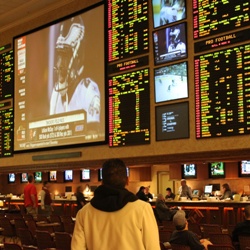US Sports Betting Ban Should Be Overturned

At the beginning of 2017, the Supreme Court justices surprised novice and expert sports gambling enthusiasts alike. Rather than simply denying the appeal from New Jersey in regards to the state’s sports gambling case, the Supreme Court offered the acting Solicitor General a chance to comment on the matter, instead. The case revolves around the attempt by New Jersey to repeal the federal law that bans sports betting across the country known as the Professional and Amateur Sports Protection Act (PASPA). As a result, everyone in the community is now waiting with bated breath to see what will become of the optimistic decision to request the acting Solicitor General’s opinion, as it could have far ranging implications that could shake up the country’s gambling industry.
PAPSA Shortcomings
PAPSA was originally put into place as a way to stop the spread of sports betting, with the act intended to protect the integrity of sports games. Nevertheless, the act ultimately failed, and instead fostered a monopoly on sports gambling in Nevada, along with inspiring a huge and illegal sports betting market. The act also stopped many states from providing any level of consumer protection, whilst depriving them of millions of dollars in potential tax revenue. Moreover, PAPSA’s existence further served to weaken the idea of federalism, which is supposed to keep Congress from influencing matters of the state.
NJ Court Case
New Jersey then attempted to repeal its own laws that banned sports betting activities, hoping to decriminalize instead of legalizing the practice. Predictably, New Jersey was then sued by the sports league, with two federal courts subsequently agreeing that PAPSA not only stops states from legalizing sports betting, but also stops them from creating laws that contradict the federal rule.
The acting Solicitor General has since said that it is unlikely that sports betting will become decriminalized, but this was to be expected and should not dim optimism. It isn’t a surprise that he said this as the government has already spent time defending its position with PASPA many times before, and that turned out well for the government. SCOTUS is also under no obligation to follow the recommendation of the Acting Solicitor General, and it usually doesn’t.
In addition, because SCOTUS gave out a CVSG helps to increase the chance that the Court will grant a hearing for the case. Having the views of the Solicitor General means that a vote of at least four justices must take place, which means that half of the justices at that time wanted to hear the case.
Awaiting SG Opinion
There is no saying when the Solicitor General’s office may give its official opinion. While four to five months is an average time to wait, the four-month gap that has taken place between the submission of the request and the response may grow this time around due to the presidential administration working to confirm Noel Francisco as its new Solicitor General nominee. Nevertheless, many experts are thinking that the acting Solicitor General may make his opinion known by the end of May, and then after that, people must wait until October at the earliest to learn what the final decision by the court will be. Until then, there is plenty of reason to remain optimistic that the Act will be overturned, as PAPSA is clearly unconstitutional.
AGA Involvement
Against this backdrop, the American Gaming Association (AGA) has been vocal in its support of PASPA being overturned, with the organization pointing out that the majority of the 50 million Americans who bet on this year’s Super Bowl did so illegally. This month, AGA president CEO Geoff Freeman also announced the establishment of the American Sports Betting Coalition (ASBC) in order to combat the bill which it believes is fueling the country’s illegal sports betting market estimated to be worth around $150 million. As ASBC mission statement subsequently explains:
“Federal law prohibiting sports betting has failed. Out of step with American attitudes, it has created a massive illegal gambling market without any rules or protections. It’s time to end the federal ban on sports betting.”










